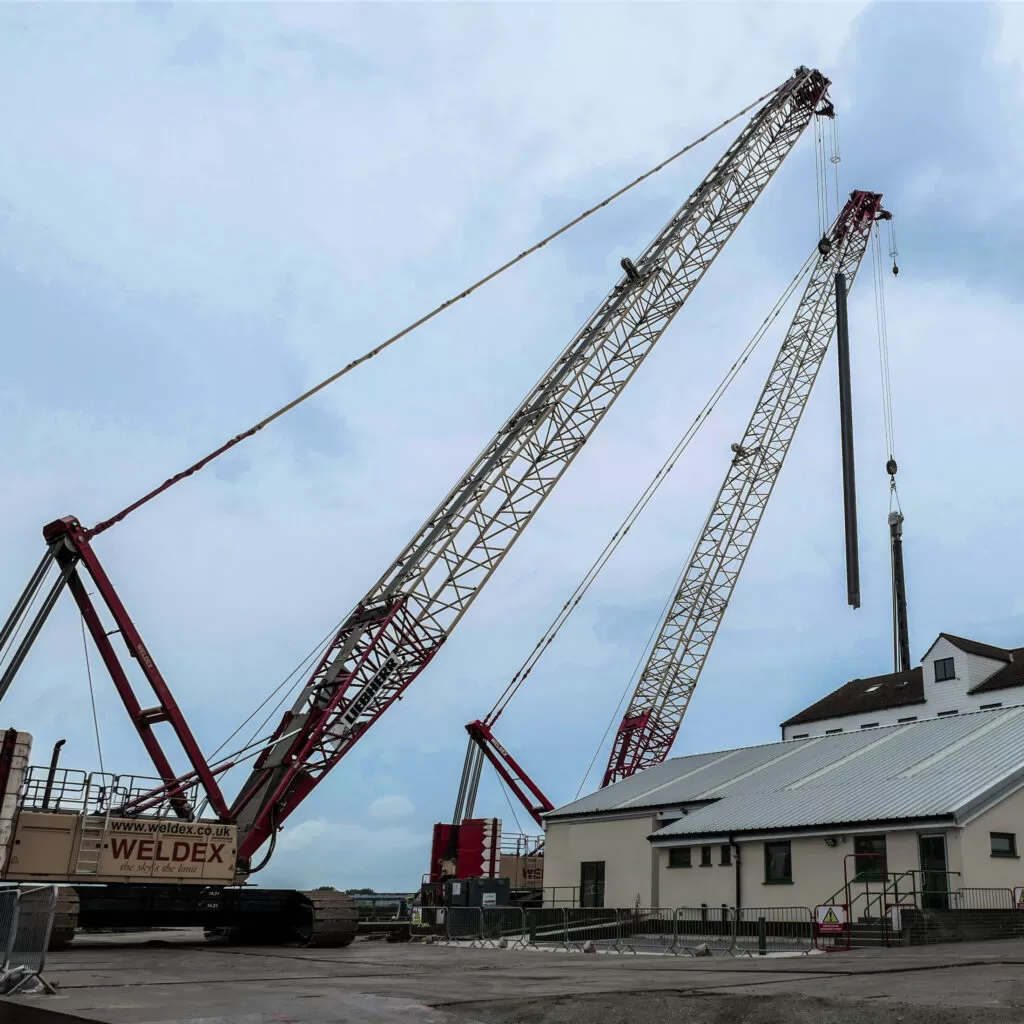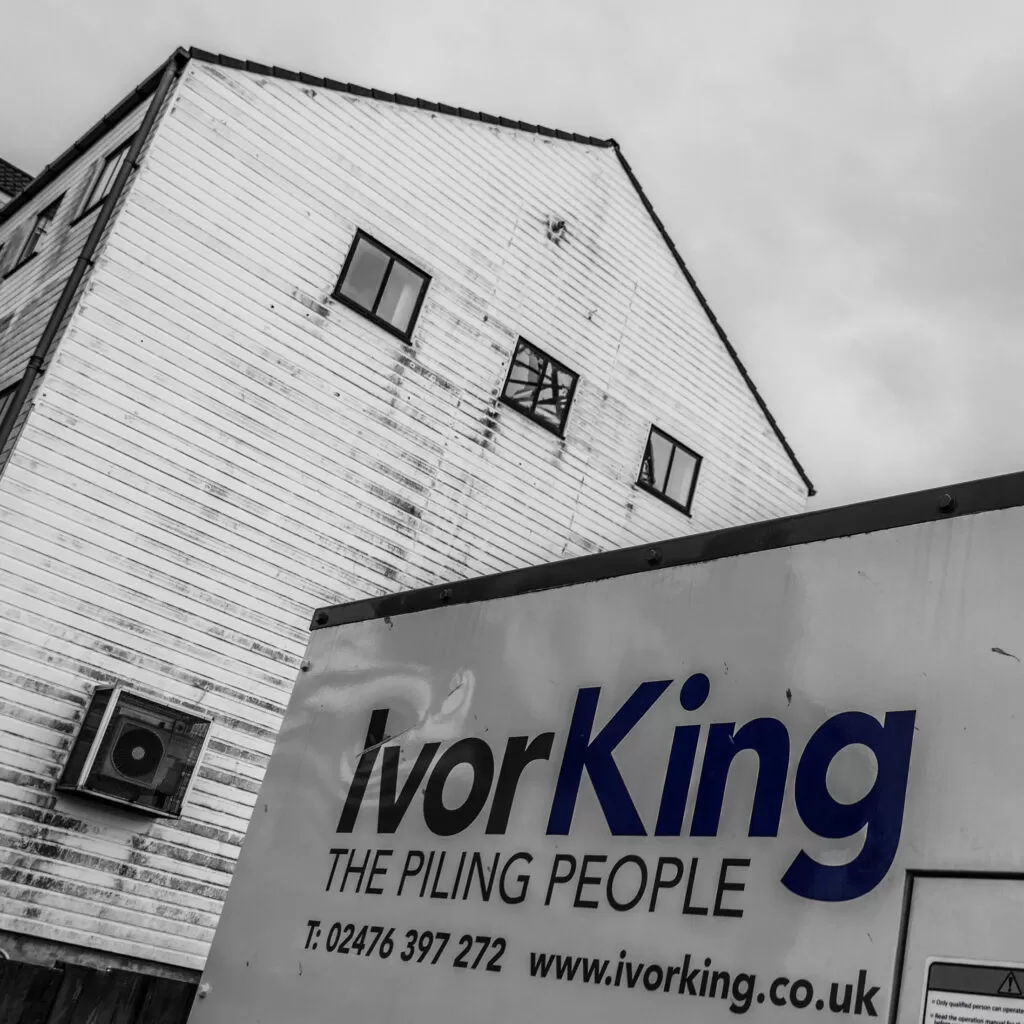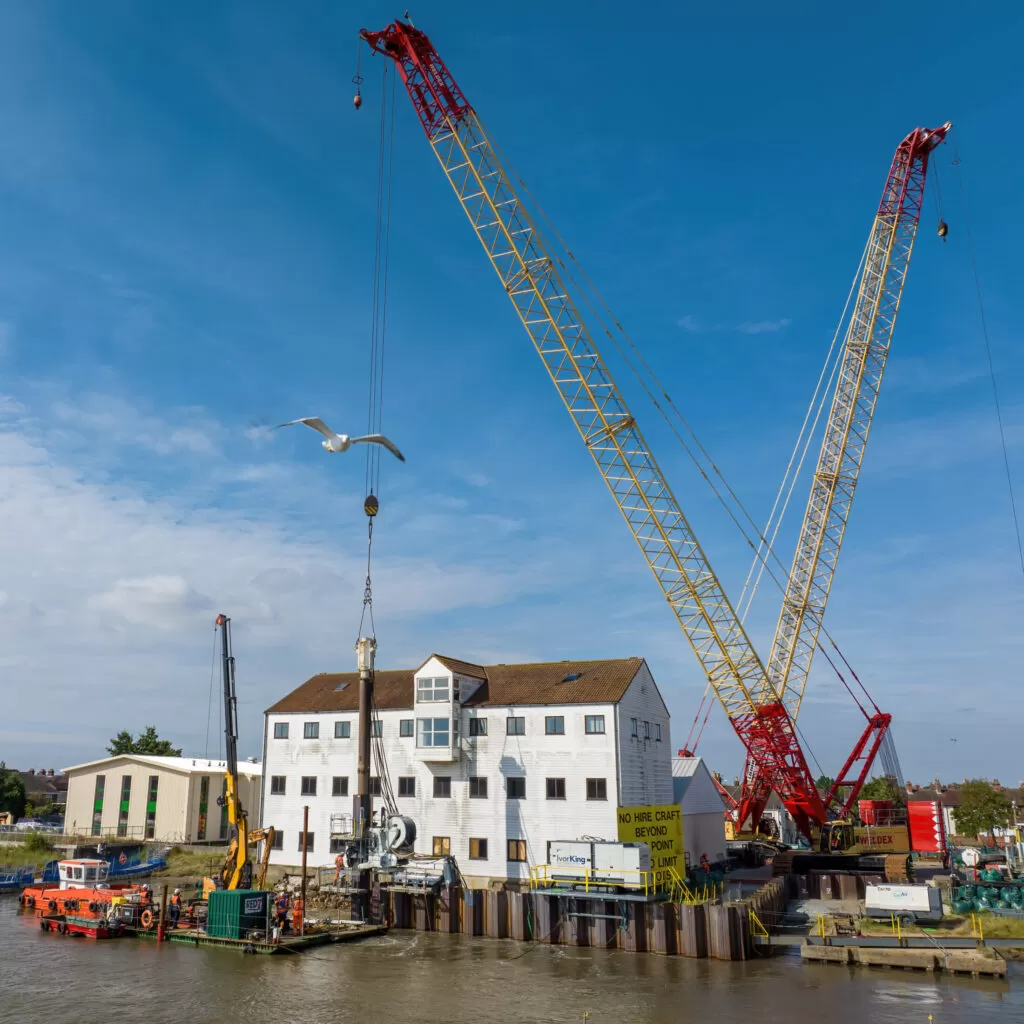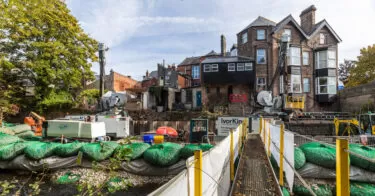Quay wall around Mill badly eroded by tidal flow
In the Norfolk seaside town of Great Yarmouth stands Grist Mill. Dating back to the late Victorian era, the building is of local historical significance and stands directly alongside the western bank of the River Yare in the Cobholm Island area of Great Yarmouth. The existing quay wall and apron had deteriorated to a quality where it provided little, if any protection to the foundations of the timber framed Grist Mill, so the services of Ivor King were engaged to install a new sheet pile flood defence around the building.
The works were part of wider £42.5 million Environment Agency Tidal Defence Initiative in the area to protect against the threat of East Coast flooding in the Norfolk seaside town. We carried out a virtually silent and vibration-free installation into hard ground to form a three-sided cofferdam waterside to the building, ensuring its future longevity.
The Challenge
The mill, located directly next to the River Yare, three miles up from where it flows into the North Sea, is set in a residential area, with neighbouring properties in close proximity.
In addition, 23.5 metre ‘Z’ section steel sheet piles would need to be delivered into site and passed over the three-storey building in pairs for installation into hard ground conditions.
The Solution
Giving consideration to the impact of works on the local neighbourhood, along with the fragile nature of mill’s foundations and its environmentally sensitive riverside setting, our Giken Supercrush solution was selected as the only truly viable way of meeting all challenges.
Supercrush is an extension of the Giken silent and vibration-free installation method, whereby sheet piles can be pressed into the ground without causing noise or vibration, whilst also overcoming hard ground conditions by simultaneously augering the ground during the installation process.
Equipped to deliver
Delivering the 23.5m long (more than twice the length of a London bus) sheet piles into site in pairs was facilitated by Ivor King’s in-house transport team. The route in (the last part being particularly challenging – narrow and twisty) was meticulously planned and deliveries were carried out using our special extendable rear-steer trailer, specifically designed for transporting long loads into sites with limited access.
Two 300 tonne Liebherr Crawler Cranes were used for the lifting operations. One to manoeuvre the collosal sheet piles over the three-storey building in pairs and into the chuck of the Silent Piler. Another to steady the Supercrush auger (necessary due to the hard ground conditions), itself standing some 30 metres tall and weighing circa 30 tonnes, during the piling process.
Using reaction force, each pair of ArcelorMittal AZ40-700 sheet piles, up to 23.5m in length, were installed by one of Ivor King’s mighty Giken ‘Double-Crush’ Silent Pilers, which clamps onto previously installed sheet piles and is capable of ‘walking’ along the piles to travel forward.
Respecting the environment
Further to our environmentally friendly installation technique, compressed air was used to create a bubble curtain, (sometimes known as a pneumatic barrier) to obstruct silt caused by augering from escaping into the flow of the river.
Following sheet pile installation, wailing and capping beams, plus anchor ties were added to increase the integrity of the structure, ready to accept a concrete slab to complete the upgrade to the mill’s foundations.
The specialist silent and vibration-free piling technique provided by Ivor King and their Giken Supercrush helped us deliver our objective of better protecting the people and property of Great Yarmouth from flood risk whilst overcoming the challenges of working in a very residential area, within meters of a locally significant building and on the edge of the environmentally sensitive site of Breydon Water. Thanks to Ivor King for their support of JBA Bentley in delivering this project.
Tom Stanley, Environment Agency Project Manager















